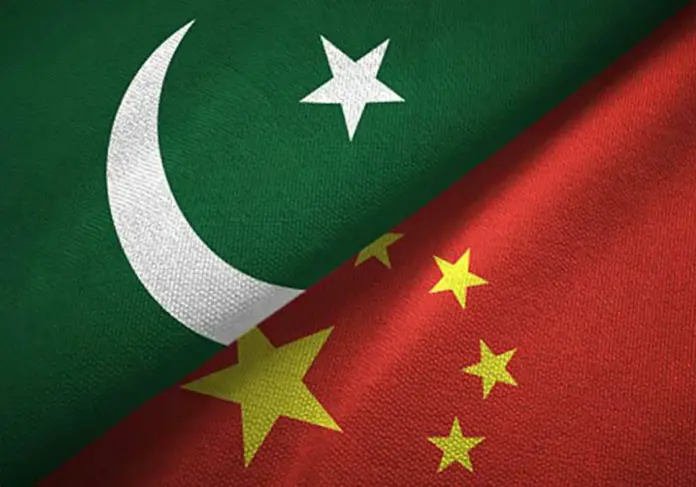The bond between Pakistan and China, often likened to being higher than the Himalayas and deeper than the oceans, embodies seventy-three years of unwavering friendship. This enduring camaraderie speaks volumes of the sacrifices, dedication, and mutual development efforts undertaken by both nations on a national and individual level. As we mark the 73rd anniversary of our bilateral relations on May 21, it serves as a poignant reminder of the unbreakable bond shared by these “two brothers.” Throughout the years, amidst various challenges, China has consistently stood by Pakistan, demonstrating true friendship through its support, sacrifices, and constructive contributions to Pakistan’s growth. This milestone celebration not only commemorates our journey together but also highlights the steadfast support extended by China, including its unwavering advocacy for Pakistan’s interests on the global stage, including at the United Nations. Indeed, prioritizing Pakistan in its diplomacy, China has exemplified the essence of genuine friendship, aligning its foreign policy with Pakistan’s and echoing mutual stances on international matters.
Despite numerous books devoted to Pakistan-China friendship, its depth is beyond grasp. A look into history shows that the seeds of this deep bond were sown in 1949. Chairman Mao Zedong’s visionary leadership and monumental Long March marked a turning point leading to China’s independence. Subsequently, Pakistan and China established formal relations in 1950, with Pakistan recognizing China as an independent state in the Islamic world following the 1950 Taiwan-China conflict. Formal diplomatic relations were established on 31 May 1951. The recognition plays an important role in facilitating China’s accession to the United Nations and promoting ties with the Islamic world, thereby fostering and strengthening bilateral relations.
A significant surge in warmth between Pakistan and China emerged following the Sino-Indian border conflict of 1962. Recognizing India as a traditional adversary, Pakistan’s leadership strategically aligned with China, fostering deeper ties to counterbalance Indian influence in the region. This alignment intensified during the Indo-Pakistani war of 1965, with China extending substantial support to Pakistan. Subsequently, military and economic relations between the two nations experienced a notable upswing, further solidifying their partnership. In 1972, Pakistan played a pivotal role in facilitating direct communication between China and the Western world. This was accomplished by organizing a clandestine visit to Beijing by then US Secretary of State Henry Kissinger. The outcome of this historic visit was groundbreaking: US President Richard Nixon became the first Western leader to undertake an official visit to China later that same year. Pakistan’s facilitation of these diplomatic exchanges marked a significant milestone in global geopolitics, reshaping international relations in the process.
In 1978, a historic event took place with the formal inauguration of the Karakoram Highway, establishing the first and to date, the only land route between China and Pakistan. This monumental infrastructure project sparked a notable surge in trade and communication between the two nations, further enhancing their bilateral relations.
During the 1980s, as Russian forces entered Afghanistan, China staunchly supported Pakistan’s stance, advocating for the withdrawal of Russian troops from the region. While officially maintaining a neutral stance throughout the Afghan conflict, Beijing is widely believed to have provided clandestine support to Afghan guerrilla groups through Islamabad, aligning with Pakistan’s efforts in the region.
Over the past two decades, the relationship and collaboration between China and Pakistan have grown exponentially, marked by numerous joint military and economic ventures. Noteworthy among these collaborations are several significant military projects, including the development of Al-Khalid tanks in 2001 and fighter planes in 2007. The joint production of the JF-17 Thunder aircraft in 2008 exemplifies the depth of their military cooperation, alongside endeavors such as the F-22P frigate and the K-8 Karakoram advanced trainer aircraft, as well as collaborative efforts in defense missile programs. Moreover, the armed forces of both countries have engaged in several joint military exercises, aimed at fostering mutual cooperation, particularly in counter-terrorism efforts. A notable recent example is the military exercise conducted this year, underscoring their commitment to enhancing joint capabilities in combating terrorism. The establishment of defense cooperation agreements led to China emerging as Pakistan’s primary arms supplier in 2007. This development not only solidified the vigorous ties between the two nations but also underscored the depth of their collaboration in the defense sector.
In 1984, Pakistan and China inked an agreement on cooperation in the realm of nuclear energy, initiating a close collaboration between the two nations on this front. Subsequently, in 1999, China successfully finalized the construction of a 300 MW nuclear power plant in Chashma, with another similar project nearing completion. In response to the United States’ refusal to enter into an India-style civilian nuclear technology exchange agreement with Pakistan, China has expressed its readiness to assist Pakistan in constructing two additional nuclear power plants. This demonstrates a continued commitment from China to support Pakistan’s energy needs through nuclear technology cooperation, further solidifying their bilateral partnership.
Pakistan’s space program has been significantly influenced by Chinese technology and collaboration. In 1990, Pakistan’s inaugural satellite was launched into space from a Chinese station due to infrastructure constraints, marking the commencement of this partnership. Since then, this cooperation has persevered, with numerous joint projects in the realms of science and technology underscoring the close ties between the two nations. This spirit of collaboration extends into the economic sphere as well. Gwadar, a pivotal port for Pakistan in terms of its strategic geography, defense, and economy, was constructed with substantial Chinese assistance. Initiated in 2002, this joint endeavor saw significant financial contributions from China, alongside ongoing technical and personnel support throughout every phase of the port’s development.
In 2008, Pakistan and China signed a groundbreaking Free Trade Agreement, the first of its kind between the two countries. This pact facilitated the establishment of new industries in both nations. Additionally, they agreed to construct a railway route along the Karakoram Highway, providing direct access for Chinese products to Gwadar port. China’s investments in infrastructure projects in Gilgit-Baltistan further strengthen bilateral cooperation.
China is heavily investing in various infrastructure projects across Pakistan, including the Neelum Jhelum Hydropower Project. Chinese companies are involved in multiple sectors such as Oil and Gas, IT and Telecom, Power Generation, Engineering, Automobiles, Infrastructure, and Mining. The two countries support each other during natural disasters and difficult times.
During a recent visit to China, Prime Minister Muhammad Shahbaz Sharif praised President Xi Jinping’s leadership and commitment to strengthening Pakistan-China relations. President Xi expressed his intention to visit Pakistan soon, underscoring the commitment of both leaders to further enhance bilateral ties and safeguard the China-Pakistan Economic Corridor (CPEC). Both countries agreed to intensify cooperation under the CPEC, transitioning to its next phase focused on high-quality development. The second phase will prioritize cooperation in artificial intelligence and agricultural modernization, with plans to accelerate implementation of ML One and KKK restructuring projects.
In essence, the enduring friendship between Pakistan and China has metamorphosed into a captivating tale of mutual support and collaboration across diverse fields. From the majestic Neelum Jhelum Hydropower Project to the bustling corridors of IT and telecom, Chinese investments have woven a tapestry of progress and prosperity in Pakistan. As the curtains rise on this new phase, the spotlight shines on cutting-edge ventures in artificial intelligence and agricultural modernization. With each project, the bond between these two nations grows stronger, fortified by a shared commitment to excellence and prosperity.






